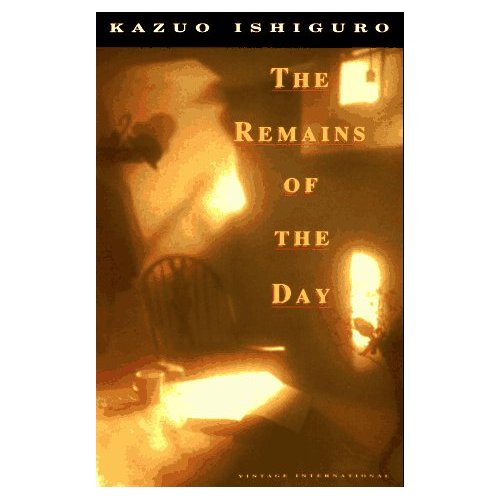

Paradoxically, dying as a social actuality, the house was reborn, transfigured as a symbol. here was a sense of finality lacking in the decline of the house in England - a finality that gave a certain dignity, even tragedy, to its demise. Ishiguro also appears to write directly against the position that the English country house inhabited in English literature and the rhetoric of national politics, as Richard Gill describes it: "During the late thirties, in the charged atmosphere of crisis, dislocation, and violence, the satirical preoccupation with the absurdities attending the decline and fall of the great house gave way to a rather sober concern with the meaning and value of what was falling.

Ishiguro depicts the house from Stevens' rather deluded point of view, and so the novel reveals that the aura Darlington Hall casts resides in the eyes of this servant. Duff twists the country house myth by allowing Beth Heke, the Maori protagonist, to achieve her dream of owning a "whole house" (2) only by embracing and teaching traditional Maori culture. Similarly, in Once Were Warriors, Alan Duff portrays the stately Trambert house, separated from the run-down council housing of Pine Block, as a symbol of success and positive values for Maoris. This seemingly innocuous beginning presages the importance of Darlington Hall in every aspect of Stevens' and its owners' lives. Farraday, after purchasing Darlington Hall, instructs Stevens to "recruit a new staff 'worthy of a grand old English house'" ( 6), which Farraday then amends to include only the current small staff Stevens realizes that this size staff cannot maintain such a house, and after receiving Miss Kenton's letter, decides to ask her to return to her former position as housekeeper in order to augment his staff plan. Kazuo Ishiguro's The Remains of the Day opens with Stevens explaining the events leading to his motor trip to the West country, specifically to visit Miss Kenton: the American Mr. The Myth of the English Country House in Ishiguro's "The Remains of the Day" The Myth of the English Country House in Ishiguro's The Remains of the Day Erica Dillon '99 (English 27, 1997)


 0 kommentar(er)
0 kommentar(er)
